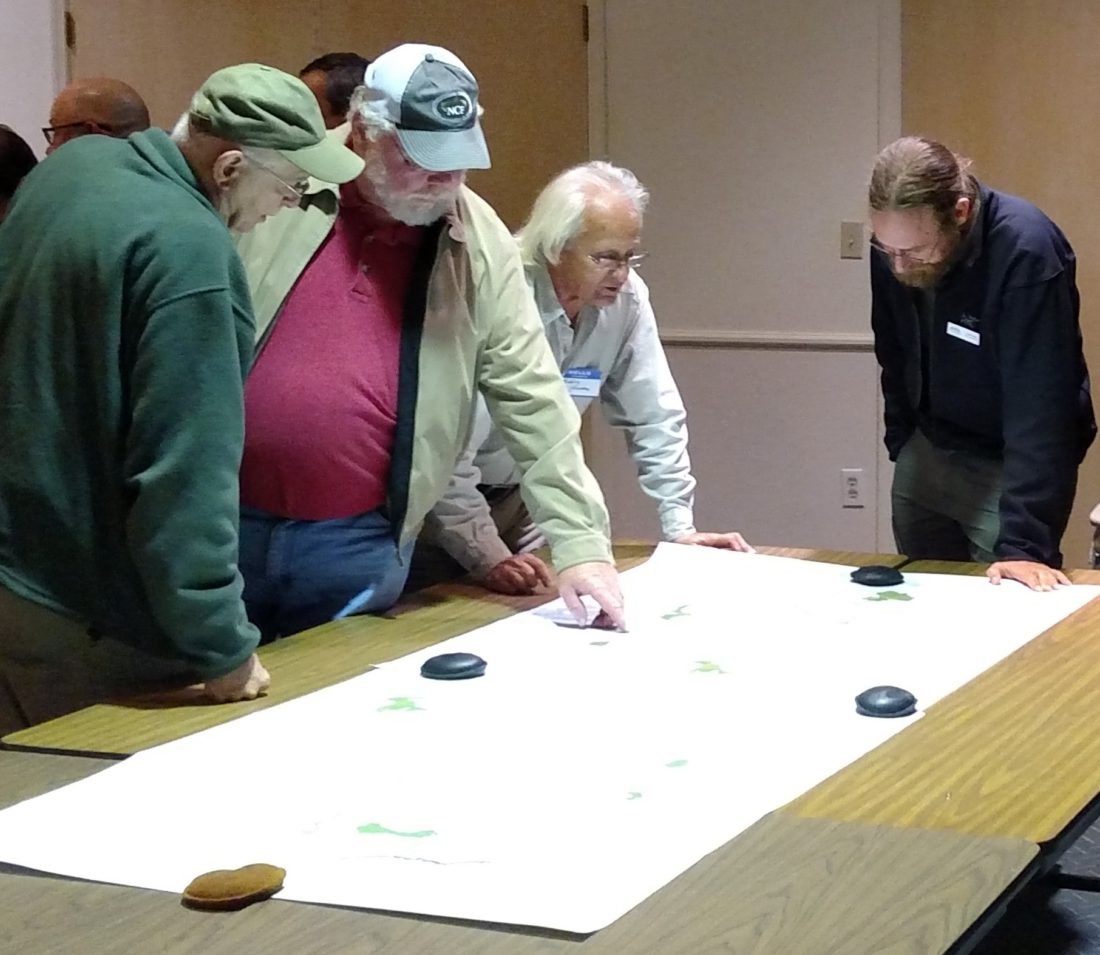By Jack Igelman, originally published by Carolina Public Press. Carolina Public Press is an independent, in-depth and investigative nonprofit news service for North Carolina.
Editor’s Note: Following publication of this article on March 16, the U.S. Forest Service announced March 17 the cancellation of all public hearings on the proposed land management plan for the Pisgah and Nantahala national forests: “At the USDA Forest Service, the health and well-being of our employees and the people we serve are our top priority. All Nantahala and Pisgah Forest Plan Revision open houses planned for March have been cancelled at this time. We remain committed to public involvement in forest management. Information and presentations from the cancelled open houses will be provided through our website and social media.” The article as originally published appears below.
The spread of the coronavirus in North Carolina has forced the U.S. Forest Service to shift its ongoing schedule of public meetings about its proposed land management plan for Pisgah and Nantahala forests, for which a 90-day public comment period is already underway.
A meeting that had been scheduled for Monday night, March 16, in Brevard was canceled, following the cancellation of a meeting on Thursday, March 12, in Asheville. However, a Thursday, March 19, meeting in Brasstown remains on the schedule for now.
The forest plan is in the first month of a 90-day public comment period, required by the National Environmental Policy Act, to review the draft plan and draft environmental impact statement. The proposed plan was released Feb. 7. The public comment period began Feb. 14 and is scheduled to end May 14.
The Forest Service did not respond to Carolina Public Press’ request for comment regarding rescheduling public meetings, future cancellations or extending the 90-day comment period.
Four other meetings throughout the western part of the state have not been canceled. The first in a series of public meetings took place March 10 in Morganton.
According to the Forest Service, the preferred method to provide comments is by using the online comment system.
The public can also submit comments by mail. Send letters to Plan Revision Team, National Forests in North Carolina, 160 Zillicoa St, Asheville, NC 28801.
Schedule allowing opportunity to hear all views?
Sam Evans, senior attorney at the Southern Environmental Law Center, said that both forest planning rules and the National Environmental Protection Act dictate that public participation provide people with adequate time to respond and that all views be heard.
“Public participation should be as broad as the range of people who are interested,” said Evans, and should take into account people, for example, with limited internet access, mobility constraints or child care duties.
In addition, he said, the comment period can be longer than 90 days.
“The Forest Service leadership has shown a strong commitment to (public participation), and I’m sure that they’ll make the right decision,” he said.
“If public meetings can’t be held in time, I fully expect them to extend the deadline and reschedule.”
Judy Mattox of the Western North Carolina group of the Sierra Club said her organization is asking the Forest Service to extend the 90-day comment period. The club has canceled an April 7 meeting intended to explain the plan to members and assist them in writing plan comments.
In a letter sent Monday to the National Forests in North Carolina supervisor, David Reid, the National Forests Issue chair of the N.C. Sierra Club, wrote, “There must be the recognition that relying on just online review and processes affects economically disadvantaged, minority and marginalized communities disproportionately.
“Moreover, even if access is theoretically available, many individuals may still be intimidated and become passive in their attempt to participate.”
Other organizations have adjusted their meeting schedules, and the coronavirus may also impact the meetings of collaborative organizations that have played a meaningful role in delivering feedback to the Forest Service.
Evans said the collaborative groups involved in the revision, including the Stakeholders Forum and the Nantahala-Pisgah Forest Partnership, will be difficult to coordinate without face-to-face meetings.
David Whitmire, chair of the Fish and Wildlife Conservation Council, said his organization has moved its Tuesday, March 17, meeting from a public facility in Waynesville to his private business’s headquarters in Rosman.
He is expecting a group of fewer than 50 and asking attendees to screen themselves for symptoms or exposure to the coronavirus.
“The Forest Service’s public meetings are hard to replace” with digital tools, said Whitmire, who also hopes the Forest Service will extend the 90-day comment period.
“We support the efforts to protect the health of our members and the general public and feel the Forest Service will make the best decision they can under law and current conditions.
“We are all boating in uncharted waters,” he added.




